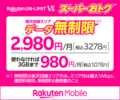What To Do In Case Of Natural Disaster In JapanTwo of the most expensive natural disasters in recent history that have occurred in Japan are the 1995 Great Hanshin Earthquake and the March 2011 Tohoku earthquake and tsunami, costing $181 billion and killing over 22,000 people. Every few days, somewhere in the country is rattled by a quake large enough to be felt, but fortunately most of them are completely harmless. When an earthquake hits it certainly seems scary, and scarier and more difficult for foreign travelers as you are in an unfamiliar country with a different language and culture. But simply knowing how to deal with the crisis is going to help you to cope with the situation more confidently. There are few basic safety procedures that you should familiarize yourself with; things you should do before, during and after a natural disaster, and of course the things you should not do meanwhile. Earthquake
Place heavy and breakable objects on lower shelves. Do not put heavy objects in high places, especially above your bed. Teach family members how to turn off gas, water and electricity. Children need to learn how to dial 199 in an emergency for fire and ambulance. Develop an emergency communications plan in case family members are separated. Have a packed emergency bag ready (Backpack, Cash, bankbook, sturdy shoes, Flashlight, radio and extra batteries, can opener, first aid kit with manual, map of your local area, wet-tissue, emergency food and drinking water, your ID cards, insurance and paper copy of important phone numbers). The emergency bag simply contains things taken when evacuating. This is different from your Emergency Stockpile kit which consists of the things to keep stocked at home. If you are travelling with others, locate and plan to meet at the closest evacuation area and be aware that portable telephones will likely not work. Know exactly where your passport, travel tickets, documents, credit cards, and money are and take them with you if you leave the building as you may not be able to go back in. The Disaster Message Board web171 is a free service provided by "NTT", which enables messages to be recorded and viewed in an Internet environment when disasters occur. By preregistering, you can receive messages via email or phone. This service is available in 4 languages; English, Japanese, Chinese and Korean. To learn how to post and read messages read the manual online. Here you can read more about disaster emergency message board web171 Q&A. During An Earthquake: Indoor - Try to open up the door or a window as soon as possible and keep it open by using something such as a doorstop, in case it jams. It is extremely important to extinguish all flames "burners, candles, etc.". Move away from objects that could fall on you and take cover beneath a sturdy piece of furniture or against an indoor wall until the tremors stop. Do not run outside in a panic. Hotel – If you are in a hotel, find the safest place "mentioned above", stay put and after the tremors stopped, approach the staff and follow their instructions. Elevator - Avoid using elevator. If you are in an elevator when an earthquake occurs, press all floors’ buttons and get off as soon as it stops and look for a shelter. If the doors do not open, use the elevator’s speakerphone to call for help. Trains & Stations – if you are at a station protect yourself from falling signs and ceiling panels. If you are on a platform, move away to a nearby pillar if you can to avoid falling down. If it is too crowded to move around, crouch down and wait for the quake to stop. The trains will stop if the earthquake reaches the specified regulation limit. If you are on a train and standing, you should get down low and if sitting try to protect you head with your bag or hand. Avoid acting on your own and follow the staffs’ instructions. Department Store – If you hear an earthquake early warning while in a public place, follow the store clerks’ instructions. If store clerks do not give instructions, move away from furniture and displays, and be careful of the scattering items. Move to the closest pillar or stair landing and protect yourself by putting your shopping basket over your head. Driving - If you hear an earthquake early warning on "TV or Radio", or can feel the tremors, turn on your hazard to alert other drivers. If you feel a strong tremor, slow down and stop on the left shoulder of the road. Find a clear area away from overhead wires, overpasses and buildings. Once the shaking has stopped, proceed with caution. Outdoor - Move into the open, away from buildings, street lights, glass panels, and vending machines as they might fall over. Falling roof tiles and masonry outside usually present the deadliest hazard. Stay in a safe place until the shaking stops. If you are close to sea, there is a possibility of Tsunami forming. Japan has a nationwide tsunami warning system. An Earthquake Early Warning "EEW" is issued when an earthquake is detected. The warnings are primarily issued by the Japan Meteorological Agency with guidance on how to react to them. Evacuate to higher ground immediately. If there is not enough time to leave the area, look for a concrete building, use the stairs and go to the roof or the highest floor possible, and stay there until the tsunami warning is canceled. Japan Meteorological Agency publishes all the information on earthquakes and their impact on town and cities in japan, including tsunami warnings. You can bookmark their website on you smartphone and visit the website for information when necessary. After The Earthquake - Listen to radio, watch NHK World Live television or visit Japan Meteorological Agency website for the emergency information. You can download the NHK’s TV and multilingual Radio App for free. Be prepared for aftershocks, as they may cause additional damage after the main shock. Check utilities for damages. Stay out of damaged buildings. If where you are, the building is not in danger of collapsing or catching fire, stay, otherwise proceed leaving with caution. Watch out for broken glasses on the floor or anything that might fall from the ceiling. Help injured or trapped persons within the limits of your abilities. If you are trapped, call out loudly for help. If for any reason you can’t shout, knock or tap on things around you, alerting people outside. Every neighborhood has an evacuation area, most often the local playground. Many schools are set up as temporary shelters. Both of these will be labeled in English. Typhoon
Southern parts of the country are particularly at risk. Regions like Okinawa from July to September deal with typhoon regularly. People living in coastal areas are particularly at higher risk. Over the sea, a typhoon can whip up huge waves, and when they reach the land can flood large areas including towns and cities. Over land, the strong winds can flatten homes, knock over trees and even tip over cars. It is best not to go outside and stay in a safe place. You can monitor the progress of approaching storms on the website of the Japan Meteorological Agency. Volcanoes
Many of the volcanoes are tourist attractions for their relaxing hot springs, scenic landscapes and hiking trails. If you are living or traveling in the area you should monitor local media reports and follow the advice of local authorities. You can check latest volcanic warnings on the website of the Japanese Meteorological Agency. If you are in Yokohama city, you can learn all you need to know about natural disasters in Japan by visiting Yokohama Disaster Risk Reduction Learning Center. The Yokohama Disaster Risk Reduction Learning Center is a hands-on facility where all ages, from small children to senior citizens, coming individually, as a family or group, have fun learning about earthquakes, fires and other disasters to be thoroughly prepared for them "free of charge". You Can Never Be Too Prepared For Natural Disasters In Japan
Better Safe Than Sorry
0 Comments
Leave a Reply. |
Halal In Japan
|
|

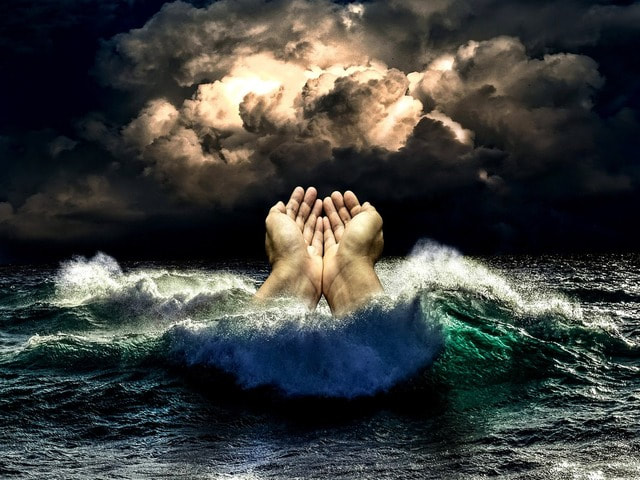
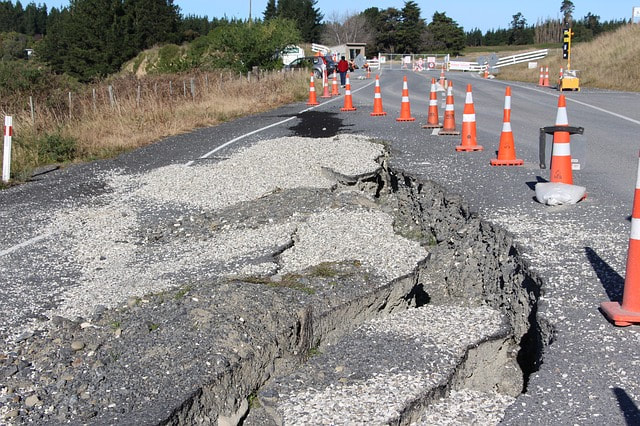
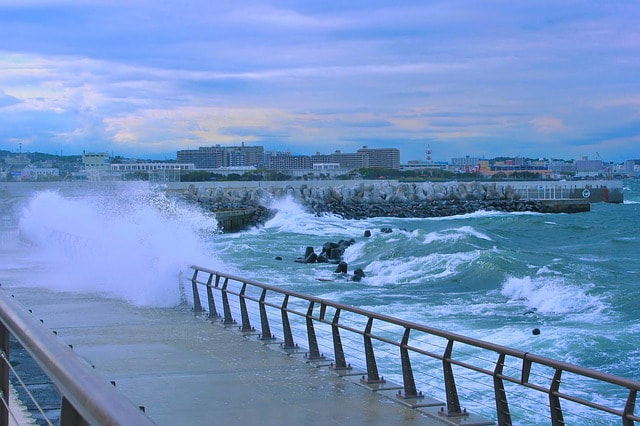
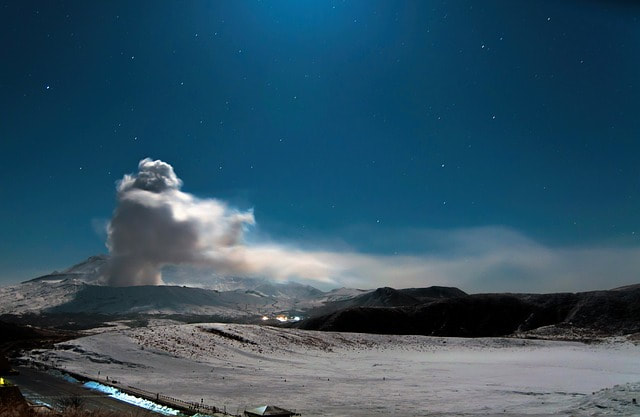

 RSS Feed
RSS Feed

